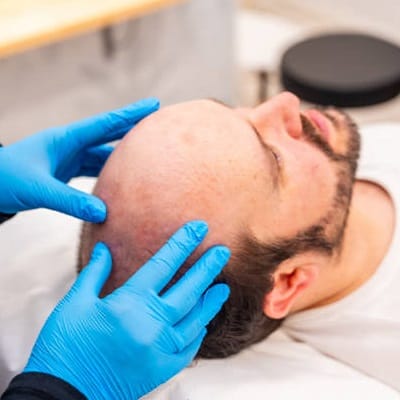
If you are the one who is tired of being bald or having hair loss problems, don’t be upset now! Numerous treatments are available, and hair transplant in Islamabad have emerged as a popular solution for individuals seeking a more permanent fix. But is a hair transplant permanent?
This blog will delve into hair transplants, exploring the techniques, factors affecting permanence, and what you can expect from this procedure in the long run.
The Longevity of Hair Transplant:
Hair transplants are often considered a more permanent solution to hair loss when compared to non-surgical treatments like topical medications or shampoos. The permanence of a hair transplant is primarily attributed to the fact that the transplanted hair follicles are typically resistant to the hormone responsible for hair loss, known as dihydrotestosterone (DHT). These follicles retain their resistance characteristics even when moved to a new location, allowing them to continue growing hair in the recipient area.
Factors Affecting the Permanence of Hair Transplants:
While hair transplants are generally considered permanent, several factors can influence the longevity and effectiveness of the procedure. Understanding these factors is crucial for individuals considering a hair transplant. Here are some key elements that play a role:
- Donor Hair Quality: The quality and density of the hair in the donor area can impact the long-term success of a hair transplant. If the donor’s hair is solid and healthy, it will likely thrive in the recipient area.
- Skill of the Surgeon: The surgeon’s experience, expertise, and precision during the transplant procedure are crucial. A skilled surgeon will ensure that the transplanted hair follicles are correctly placed and will grow as expected.
- Recipient Site Preparation: Adequate recipient site preparation is essential for the successful growth of transplanted hair. The surgeon must create the proper channels and angles for the transplanted follicles to thrive.
- Post-Operative Care: The care you provide after the transplant is vital for the longevity of the results. Following the surgeon’s post-operative instructions, taking prescribed medications, and avoiding activities that could damage the transplanted area all contribute to the permanence of the procedure.
- Individual Factors: Each person’s biology and response to the procedure can vary. Some individuals may experience better results and longer-lasting effects than others.
- Progression of Hair Loss: While transplanted hair is generally resistant to DHT, it’s important to note that the surrounding, non-transplanted hair may continue to thin and recede. Some individuals may require additional hair transplant sessions over time to maintain a natural appearance.
The Need for Realistic Expectations:
It’s essential for individuals considering a hair transplant to have realistic expectations. While the transplanted hair is generally resistant to further hair loss, the procedure does not stop the natural progression of hair loss in other areas. Therefore, the outcome may vary from person to person, and additional sessions might be necessary to maintain a full head of hair.
It’s also important to recognize that the final results of a hair transplant can take several months to become fully apparent. The transplanted hair may initially shed before new growth begins. The complete outcome can take up to a year or more to become visible.
Maintenance and Follow-Up:
To ensure the long-term success of a hair transplant, individuals should be prepared for maintenance and follow-up procedures. Regular check-ups with the surgeon are essential to monitor the progress and address concerns. Additional transplant sessions may be required to handle ongoing hair loss, especially in patients with extensive hair loss patterns.
Nonetheless, it’s worth noting that each additional session can yield a diminishing number of grafts, as the donor area has a limited supply. This is why it’s crucial to discuss long-term strategies with your surgeon and establish realistic expectations.
Alternatives and Complementary Treatments:
While hair transplant is a permanent solution to hair loss, they may only be suitable for some. Some individuals may not have sufficient donor hair, while others may be uncomfortable with surgical procedures. In such cases, there are alternative and complementary treatments to consider:
- Platelet-rich plasma Therapy: PRP injects a patient’s concentrated platelets into the scalp to stimulate hair growth. It can be used alongside hair transplants to improve results.
- Scalp Micropigmentation (SMP): SMP is a non-surgical procedure that involves tattooing tiny pigment dots on the scalp to create the appearance of a closely shaved head or denser hair. It’s an option for those who prefer a less invasive solution.
The Bottom Line!
Therefore, hair transplants are considered a relatively permanent solution to hair loss. The transplanted hair follicles are typically resistant to DHT and continue to grow in their new location. However, the longevity of a hair transplant depends on various factors, including donor hair quality, surgical skill, post-operative care, and individual characteristics.
Ultimately, the decision to undergo a hair transplant should be made after thorough research and consultation with a qualified surgeon at SKN Cosmetic Clinic Islamabad, who can assess your needs and guide you on the most suitable approach to address your hair loss concerns.







Book your Appointment